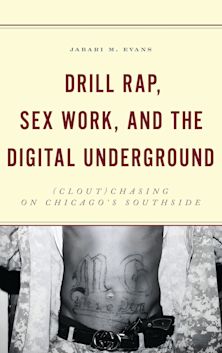Urban Ills
Twenty-first-Century Complexities of Urban Living in Global Contexts, Volume 2
Urban Ills
Twenty-first-Century Complexities of Urban Living in Global Contexts, Volume 2
Description
Urban Ills: Twenty First Century Complexities of Urban Living in Global Contexts is a collection of original research focused on critical challenges and dilemmas to living in cities. Volume 2 is devoted to the myriad issues involving urban health and the dynamics of urban communities and their neighborhoods. The editors define the ecology of urban living as the relationship and adjustment of humans to a highly dense, diverse, and complex environment. This approach examines the nexus between the distribution of human groups with reference to material resources and the consequential social, political, economic, and cultural patterns which evolve as a result of the sufficiency or insufficiency of those material resources. They emphasize the most vulnerable populations suffering during and after the recession in the United States and around the world, and the chapters examine traditional issues of housing and employment with respect to these communities.
Table of Contents
Preface
Preface for Volume Two
Introduction
Section Three: Urban Health
Chapter Sixteen: ‘Place Matters:’ Contextualizing Health Using a Social Determinants Model
Chapter Seventeen: “Social Dis(ease) of African American Males and health”
Chapter Eighteen: “Economic Contractions’ Neglected Impact on African Americans’ Mental Health”
Chapter Nineteen: “Urban Poverty and Cardiovascular Disease Health”
Chapter Twenty: “’Coming to America:’ Mental Health Needs Among Undocumented Mexican Immigrants”
Chapter Twenty -one: “The Intersect of Poverty and Health: Are Race and Class Far Behind?”
Chapter Twenty-two: “The Flint (Michigan) Adolescent Study: A Longitudinal Examination of Social Support And Achievement Motivational Beliefs of African American Adolescents”
Chapter Twenty-three: “Does Area Regeneration Improve Residents’ Health and Well-being? A New Methodological Approach to Measuring the Health Impacts of Area Regeneration in Scotland”
Chapter Twenty-four: “The Twenty First Century Gold Coast and Slum”
Chapter Twenty-five: “Another Border to Cross: Mexican Immigrant Families and Obstacles to Neighborhood Integration in the Suburbs”
Chapter Twenty-six: “The Relationship Between Mass Incidents and Social Inequality in the Social Transformation of China”
Chapter Twenty-seven: “Housing and Identity in Postcolonial Portugal”
Chapter Twenty-eight: “Exploring the Social Outcome of Brownfield Regeneration in Different types of Deprived Communities: Evidence from Manchester, England”
Chapter Twenty-nine: “Disasters as Hyper-Marginalization: Social Abandonment in the Lower Ninth Ward of New Orleans”
Chapter Thirty: “Selling Out: The Study of the Transition from Rental Control to Market Rate Housing in New York City”
Chapter Thirty-one: “Epilogue: Confronting the Dilemmas of Urban Living in Twenty First Century Global Contexts”
Product details
| Published | 13 Dec 2013 |
|---|---|
| Format | Ebook (Epub & Mobi) |
| Edition | 1st |
| Extent | 352 |
| ISBN | 9780739186381 |
| Imprint | Lexington Books |
| Illustrations | 27 BW Illustrations, 10 BW Photos, 32 Tables |
| Publisher | Bloomsbury Publishing |



































